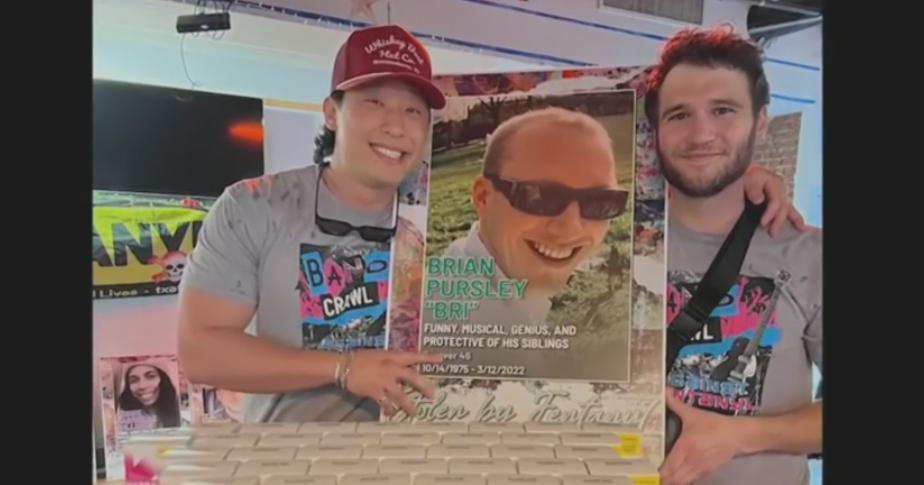The local nonprofits that brought North Texas its first Narcan vending machines are now taking the idea a step further by creating smaller, 3D-printed versions aimed at reaching more people.
Peter Pursley says by the time he was born, his half-brother, Brian, was already battling substance abuse.
“Throughout my entire life, he was very familiar with the drug scene and what he was doing and what he was using,” he said.
Four years ago, his family got heartbreaking news: Brian had overdosed at a bus station.
“When they got to him, he wasn’t conscious, he was well passed away, so that was a huge part of my life and my mom’s and so after he died, that really sprung us both into action,” he said.
From handouts to vending machines
At first, they started handing out Narcan in their community. When used properly, it can reverse an opioid overdose.
Then, Pursley’s mother founded the nonprofit LIVEGY, and last fall, they partnered with the nonprofit Conscious Conduit to install large-scale Narcan vending machines across North Texas and later in more than 30 locations nationwide.
“Schools, places like YMCAs, public places, libraries,” he said.
Smaller machines for tighter spaces
However, inside tighter spaces, their size is an issue, leading the team to create compact, 3D-printed dispensers that mount to walls. Each can hold about 75 individual units of Narcan.
Each machine includes a QR code linking users to overdose education, Narcan training and addiction support—something Pursley says is just as important as the medication itself.
Band Crawl event launches rollout
The official rollout will coincide with this weekend’s Band Crawl Against Fentanyl in Deep Ellum, which will blend live music with overdose-response training. A memorial wall will be available for people to bring photos of loved ones on Saturday.
“You need to be able to identify overdose, know you’re safe to act and how to act,” Pursley said.
Schools and youth programs involved
The team is now working with three local school districts and several youth programs across Texas.
In recent years, Pursley says the stigma surrounding this topic has started to fade.
“I think people are realizing hey I don’t know what my kids are doing all the time, so I think that has spurred a lot of it,” Pursley said. “This isn’t a problem happening solely in the opioid community. This is a problem happening to people of all walks of life.”

